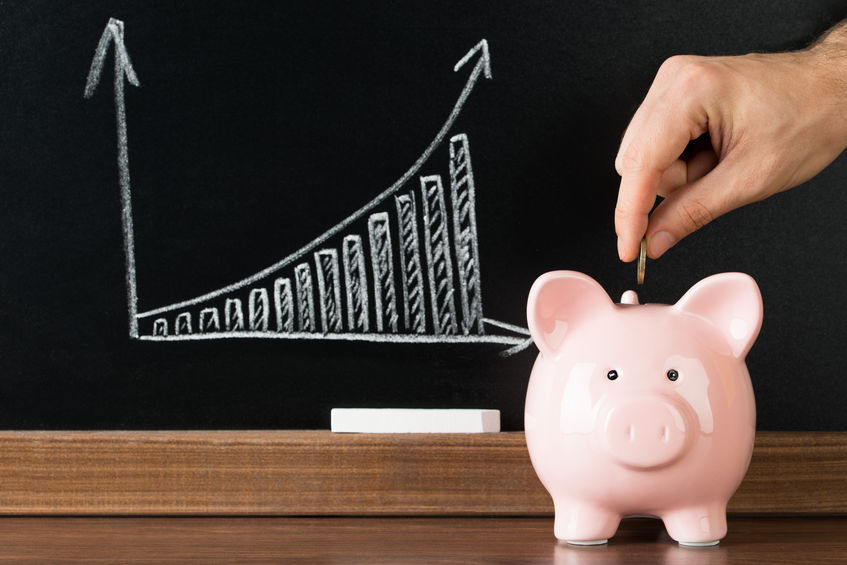 When faced with debts – ranging from mortgage to credit card to student loan – investing may be the last thing on your mind. But who can blame you? Maybe that sense of obligation or guilt is dissuading you from funding your retirement account or opening an investment account before paying off your debts.
When faced with debts – ranging from mortgage to credit card to student loan – investing may be the last thing on your mind. But who can blame you? Maybe that sense of obligation or guilt is dissuading you from funding your retirement account or opening an investment account before paying off your debts.
However, should you wait until your debts are paid off before you start investing? As it turns out, the answer is not as straightforward. That’s why we’re going to explore the subtleties involved.
Have an Emergency Fund!
Although this post aims to help you decide whether to pay off your debt first before investing, the necessity of having an emergency fund is worth mentioning. Ask yourself: What would you do if you lose your job today or have a medical emergency? If your answer is to use your credit card or take out a personal loan, then you’re putting yourself in a precarious situation financially. You should set aside a fraction of your monthly income until you save up to six month’s worth of your expenses, so you’ve any emergency covered.
Pay Off Debt vs. Investing
Now that you have an emergency fund, should you focus your attention on clearing off your debts or investing? As a rule of thumb, you should be doing both! This is primarily because of the compounding effect of investing. The longer you wait to start investing, you’re selling yourself short in terms of future earning potential.
For instance, if you start investing $100 monthly at a 10% annual interest rate when you’re 25 for the next 35 years later, you’d have about $340,000 by the time you retire. On the other hand, if you’re ten years late to the party before you start investing, you’d have about $123,000 at the end of the day. Guess what? The difference of $12,000 you failed to invest in the first 10 years is what led to the $217,000 difference in terms of returns at retirement.
However, deciding how to balance paying off your debt and investing is dependent on a lot of factors. Some of which include:
- Debt Interest Rate
If you have high-interest debt, it makes better sense to clear it off before investing. Here’s why:
The average credit card interest rate is 20.28%. What happens if you decide to put aside paying off your credit card debt in favor of investing? For starters, it’s extremely difficult to find a low to moderate risk investment that will give you up to 20% interest. The historical average stock market return is 10%. This means that by investing, your credit card interest is accruing way faster than your investment returns. In the long run, you’ll end up losing more money. Even though it’s not advisable to stop investing altogether, you should focus more of your attention on your high-interest debts till you clear them off.
On the other hand, if you have low-interest debts – such as student loans and mortgages – you don’t need to be as aggressive, so that leaves up more for investing.
As a rule of thumb: If your debt interest rate is higher than the interest rate on investment, then you should focus more on clearing off your debt – and vice versa.
- Retirement date
The last thing you want is to carry debt into retirement. It’s both mentally and emotionally draining when you have to make monthly payments when you’re no longer working.
If you’re nearing your retirement date, it’s best to concentrate on clearing off your debt without abandoning your retirement savings. But you should know that this may be challenging to do.
If you realize you will be far from your retirement financial target after clearing your debts after analyzing your situation, you might have to work longer or reduce spending or do both.
- Tax Benefits
Some debts come with tax benefits. For instance, interest paid on student loans and some mortgage interest payments are tax deductibles. Paying them off allows you to save more in the long run.
On the other hand, depending on your income, you may qualify for a tax return Saver’s Credit of up to 50% of your eligible contributions to a traditional individual retirement account (IRA), Roth, and several other retirement plans. By contributing to your 401(k), you benefit by not paying taxes until you receive your profits decades later.
Wrap Up
In conclusion, clearing off your debt and investing shouldn’t be looked at as an either-or proposition. However, your unique situation will determine which option you should pay more attention to. That’s why it’s important to analyze your current situation and your financial goals so you can make an informed decision.
Financial literacy is often overlooked but remains of critical importance to all people. We understand the complexities of navigating the legacy financial space and are here to help guide you through while answering all questions you may have. Contact us here today.

